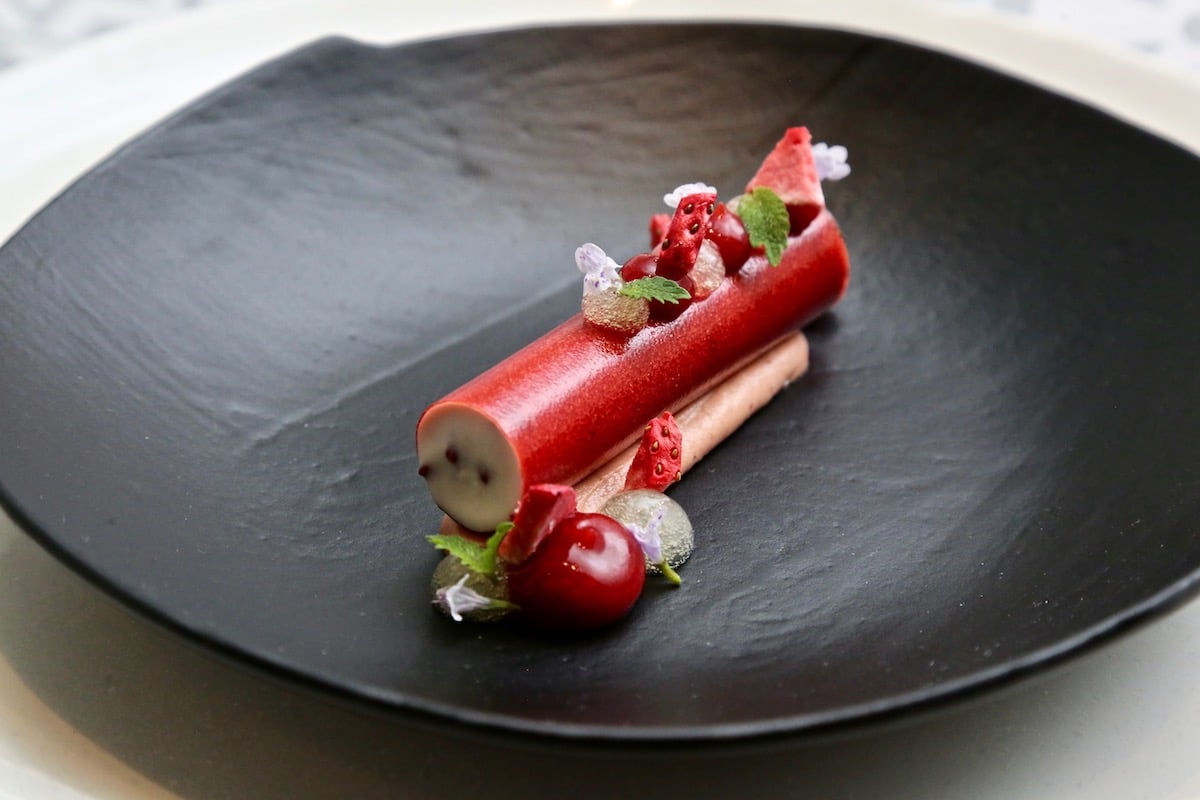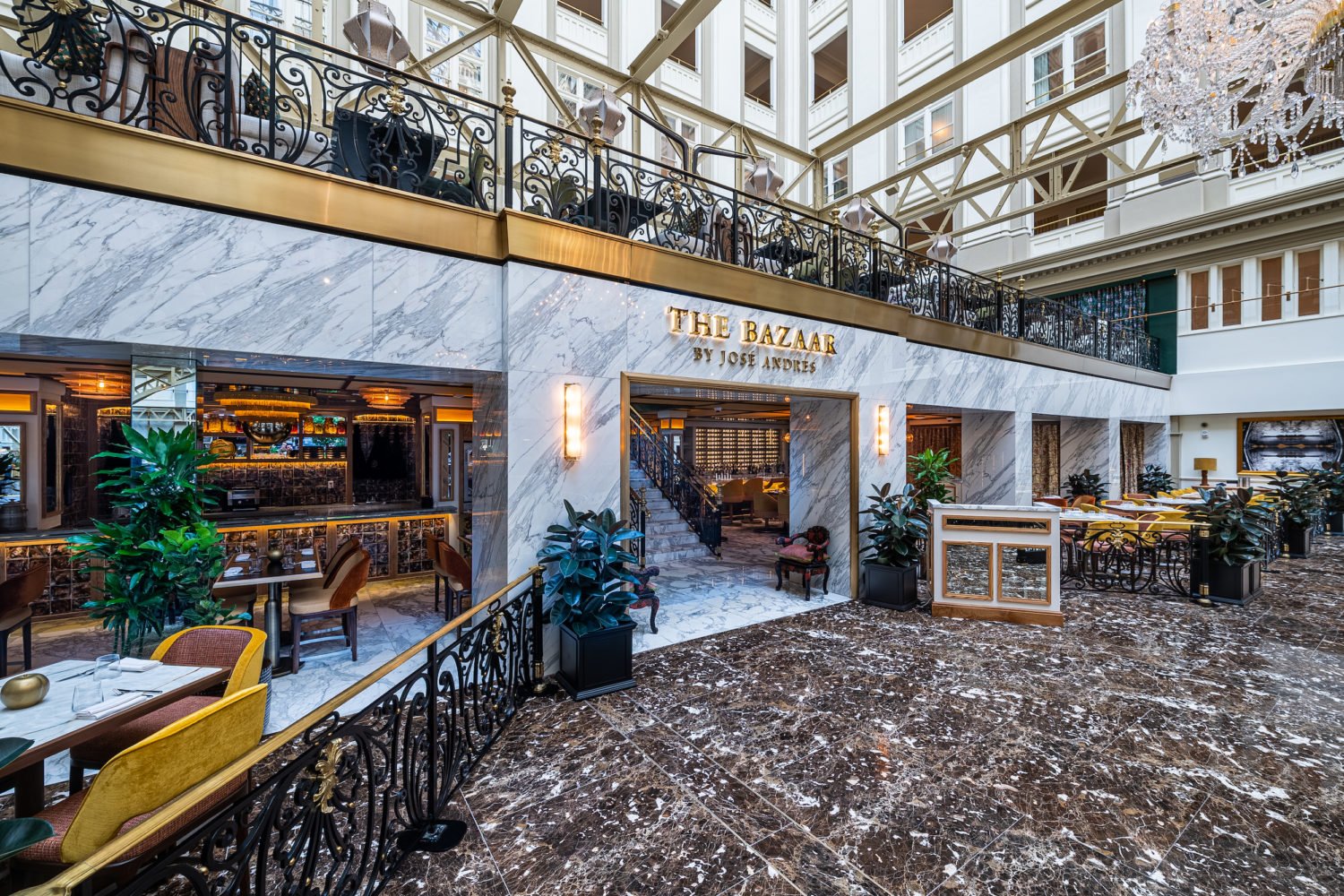Reviving a restaurant from pandemic hibernation is nothing like flicking a switch. Chefs are tasked with finding staff during a nationwide shortage. They must create menus and source ingredients while being snarled by broken supply chains and soaring prices. And they are expected to meet diners’ before-times expectations. But reopening a boundary-pushing, luxe tasting room like José Andrés’s Minibar after a 19 month closure? That is another challenge entirely.
The discreet doors to the modernist Penn Quarter destination will reopen tonight. Andrés was among the first high-profile restaurateurs to close his dining rooms at the beginning of the pandemic. He has since reopened nearly all of them (save for Jaleo Crystal City, permanently closed) and pioneered a vaccine mandate for all indoor diners over age 12. Minibar will make a late grand entrance, seating just six guests an evening to start (before, the salon served groups of 12 in two seatings, plus the six-seat private José’s Table, which will reopen later). No surprise, online tickets for the $295 per person dinners—before tax, gratuity, and an optional $195 wine pairing—are already sold out through the allotted dates in November. More tickets will go on sale for December and January, possibly with expanded capacity and additional offerings like a cocktail or non-alcoholic “virtue” pairing.
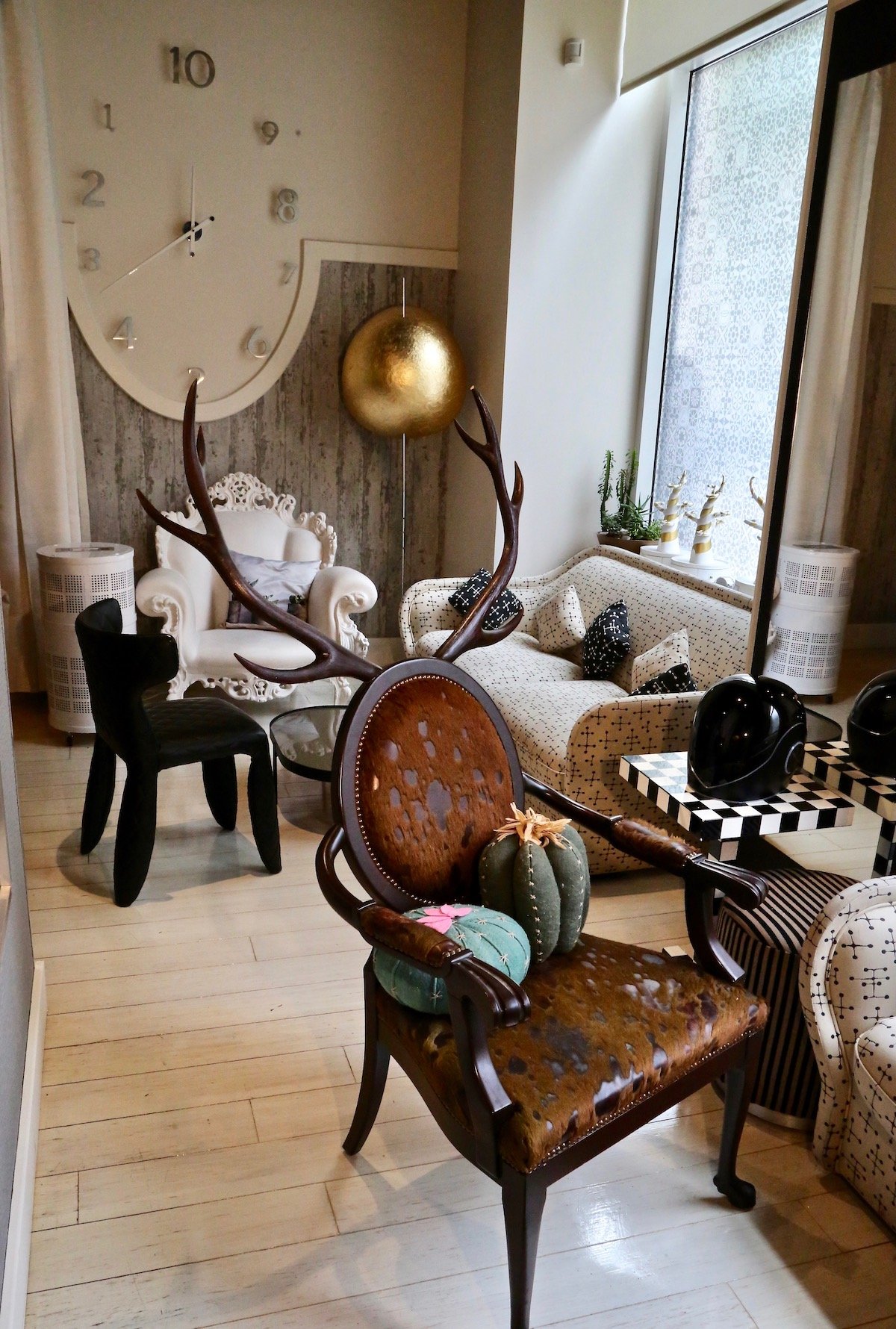
Minibar’s hibernation wasn’t just lengthy because of Covid concerns. After all, reopening requires that customers have a certain level of comfort with the 18 year-old tasting counter’s intimate, dinner theater-style service. But what’s also taken months—and hundreds of recipe tests, tastings, and tweaks—is a reimagining of Minibar’s core offerings, which are now focused on Japanese ingredients and techniques.
The 27-odd course tasting menu has employed Asian elements in the past, though the team says its fresh Japanese focus is driven by Andrés’s love of elegant, clean flavors and seafood. It also plays to the background of two longtime ThinkFoodGroup chefs, who lead the research and development kitchen: Osaka native Koji Terano, who helmed Japanese restaurant Sushi-Ko in its early years, and Charisse Grey, ThinkFoodGroup’s Senior Director of Research & Development who’s also of Japanese descent and grew up in Hawaii.
“It’s taken the whole team, a collaboration of different brains,” says chef Sarah Ravitz, who leads the Minibar kitchen along with chef Melissa Lalli. “Historically at Minibar we don’t do a big menu overhaul—it’s seasonal and we evolve slowly. A few dish changes every couple months. This is 75 to 85 percent brand new, so I think it’s an opportunity.”
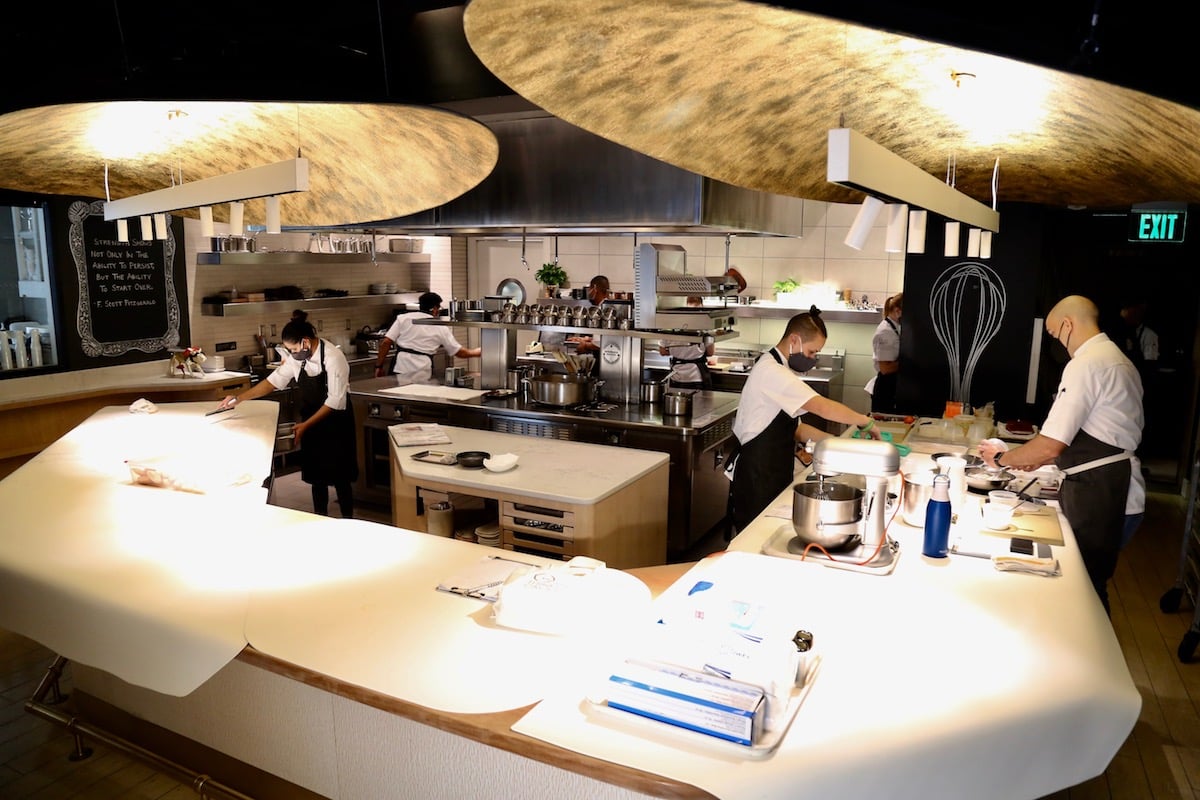
No DC fine dining restaurant has evolved quite as much as Minibar, which debuted as a six seat counter inside Andrés’s late Cafe Atlantico in 2003. It moved to its current Penn Quarter location in 2012, with a sleek tasting bar and adjoining cocktail spot Barmini, which reopened a year ago. But this is a new direction for the two hour tasting experience, which previously dabbled in global flavors while adhering to its modernist Spanish roots.
Most restaurants that advertise themselves as ingredient- and technique-driven have nothing on Minibar. ThinkFoodGroup employs a dedicated research-and-development team that work in the nearby “home office” kitchen to brainstorm, conceive, test, taste, and visually perfect a new dish for the menu alongside Minibar’s chefs. The lab-like process, which can take months, marries science and art. But it usually starts with a single ingredient for inspiration—whether that’s a humble fabada bean or luxurious slab of wagyu beef. The latter is one of the new bites to grace Minibar’s menu.
“The concept is Japanese, but we don’t want to make it too obvious,” says Terano of creating the wagyu dish. “We take technique from other Japanese ingredients—aburi, lightly seared, which is often done at a sushi counter with a piece of fatty tuna. We wanted to have elements of shabu-shabu, but we do [a sphere of] beef consommé instead with a touch of soy or sweet sake.”
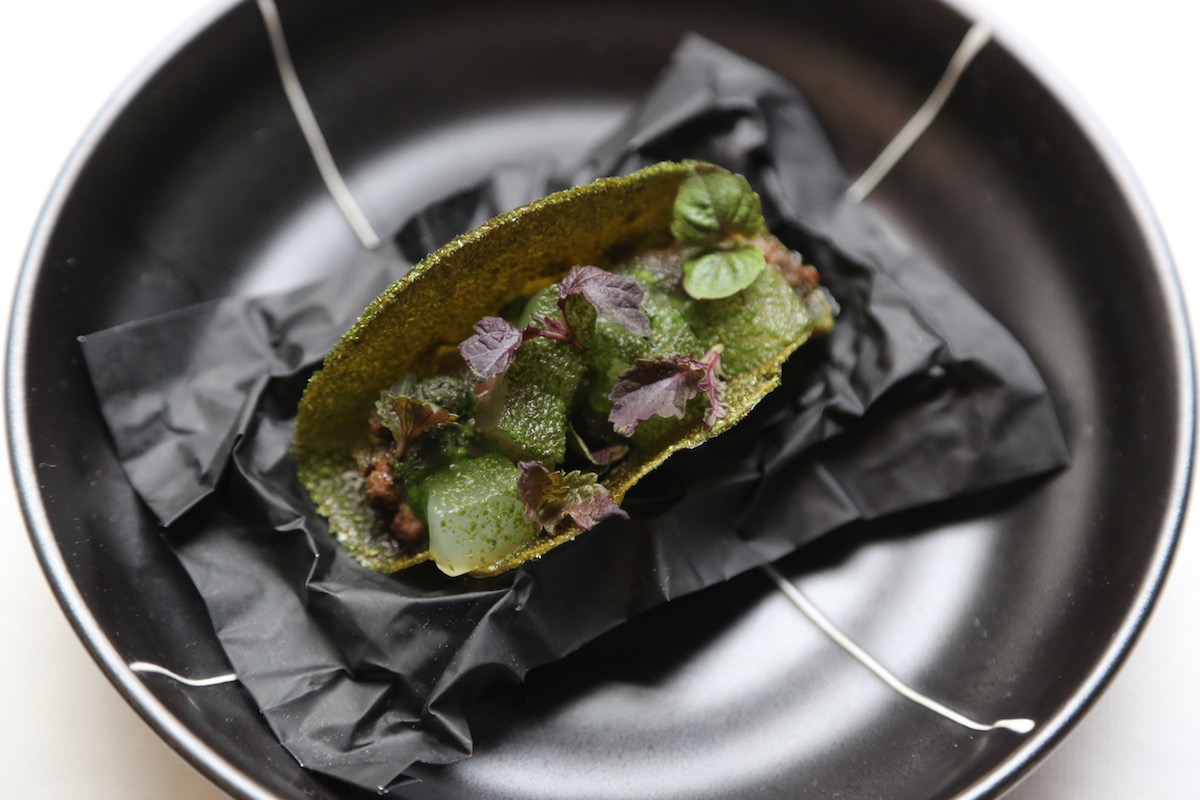
All of the intricacies shouldn’t overshadow the fact that Minibar, like many restaurants, has faced challenges with staffing and sourcing. The full-time team is smaller than usual, and the rotating crop of interns and externs from Spain have all but disappeared. Japanese ingredients—Hokkaido uni, yuzu, specialty soy sauce—were once easily accessible. Now they are more difficult to obtain, due in part to typhoons or shipping delays. A drought in France has caused the price of seasonal white truffles to rocket to $3,300 a pound (you won’t find them on the menu for now). Though the $295 menu is hardly inexpensive, the team says Andrés was adamant about not raising the cost above the restaurant’s pre-pandemic price tag. It’s no longer the most expensive dining experience in the District—it’s been surpassed by Logan Circle newcomer Jônt, which clocks in at $305 per person.
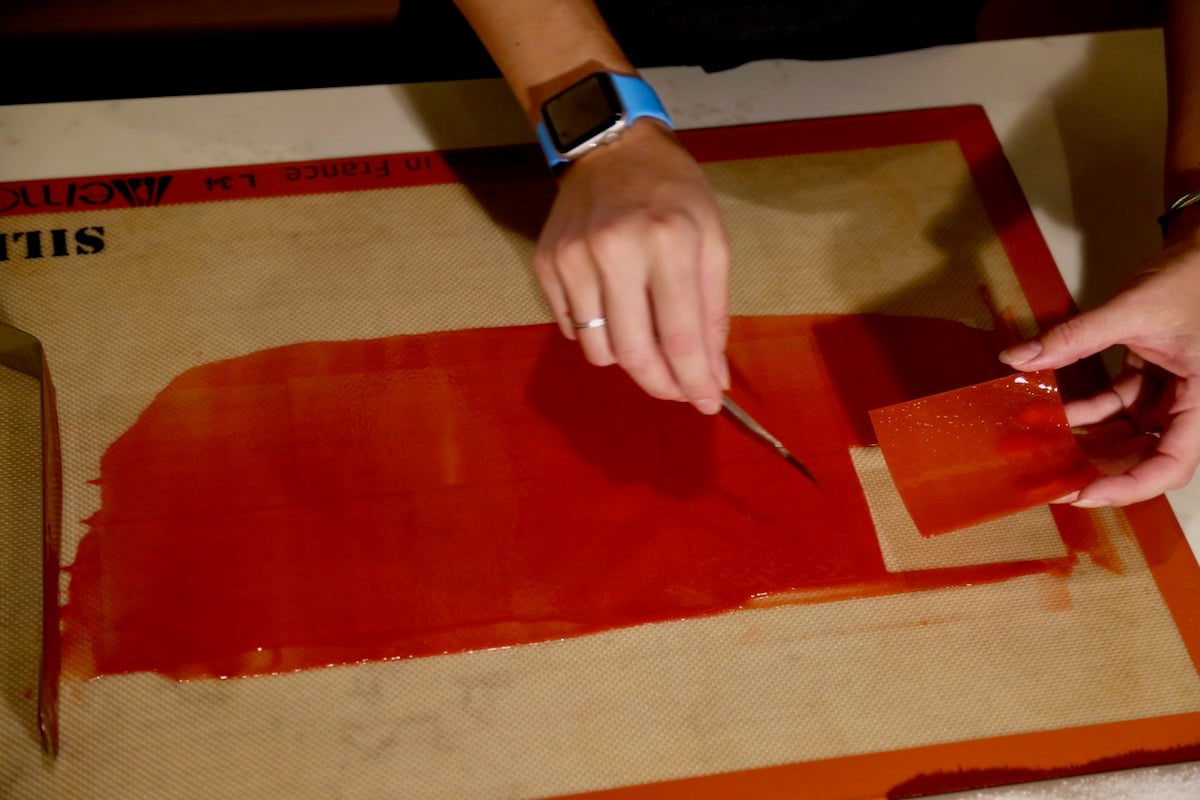
Core consistency, even as Minibar evolves, is important. In typical whimsical fashion, guests will sample dishes inspired by beloved street foods—once shawarma and Jumbo Slice, now bites like shiso leaf tacos. The latter involves fashioning a delicate shell from the fragrant herb and sea lettuce, and layering it with Iberico ham, green tomato gel, and tomatillo. Sweet courses include a play on Japanese strawberry milk with strawberry tuille, yuzu and strawberry gel, crunchy bits of freeze-dried berries, and milk sorbet. Also: a 3.0 revival of the justly famous Krispy Kreme-inspired doughnut, now with flavors of hojicha green tea and ningyo-yaki tempura.
“No dish is ever finished in our mind. There’s always new ingredients, or a new technique, or something you discover that will be impactful for the recipe,” says Charisse Grey.
Throughout the lengthy testing process, Dickens says there’s one question that’s repeated daily: is this a Minibar dish?
“It has to have an element of whimsy,” she says. “When you look at it, you shouldn’t know exactly what you’re getting. You want that mystery of what you’re about to eat. But you also have full trust, knowing whatever you’re just about to put in your mouth you’ll enjoy.”
Minibar by Jose Andres. 855 E St., NW

